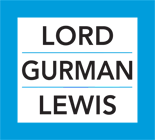The Unforgiving Market
by Andrew Gurman
The recession beginning in 2008 marked a key turning point for the legal market that had previously been vibrant for years. After law firms and companies laid off a great number of attorneys in late 2008 and 2009, they have remained cautious to this day in their approach to lateral hiring. In the pre-2008 environment, attorneys looking to move found themselves with far more and varied options than they did after that time. Although U.S. stock markets have had excellent returns for almost five consecutive years, the U.S. legal market has seen a tepid recovery that has left companies and law firms with far greater leverage during the hiring process than the attorney candidates who are seeking to join them. What had for years been a candidates’/sellers’ market turned into an employers’/buyers’ market by late 2008. Here are some specific examples of the post-recession challenges faced by associates, counsel, and partners looking to make a move:
- Employers are more selective in granting interviews. When firms send us objective criteria regarding the candidates they’ll consider, they hew closely to those criteria in deciding upon interviews. For example, if a firm advises us that it will only consider attorneys who graduated from a top-15 law school, clerked for a federal judge, and work for a top-20 law firm, they mean it. Firms are also more rigid about sticking to their criteria regarding class years and less willing to consider candidates who are willing to drop back in class year. This stricter approach to hiring necessarily narrows the candidate pool of potential candidates and shuts out many candidates who would have gotten interviews pre-recession. Firms pre-recession tended toward a more lenient approach in their consideration of candidates and would deviate, sometimes substantially, from their initial criteria. For example, albeit an exceptional one, a recruiter pre-recession placed a senior litigation associate from a low-ranked BigLaw firm in a corporate associate position with an elite BigLaw firm. A move like that from the corporate boom years is virtually unimaginable today.
- Employers move slowly and deliberately before extending offers. Searches that previously took weeks can now take months. Firms often feel less urgency to hire quickly as they recognize their strong position in the current market and exercise caution with hiring new associates given the uncertain state of the economy. Firms are more likely to meet with more candidates and over longer periods before deciding upon an offer. The process therefore can drag out for an extended period until a firm finds a spot-on candidate to fill its need. For example, it took more than seven months from the time that I presented an associate candidate to a firm (early November) until the firm extended him an offer (June). Between submission and offer, the firm interviewed more than ten candidates, took almost three full months to invite the candidate for an initial interview (end of January), and after a second round interview (mid-February) waited a few more months before deciding to extend an offer. Although this example is extreme and there are counterexamples of quick hiring processes today, this experience reflects the delays that candidates (and recruiters) have experienced more often in the post-recession period.
- Firms are less willing to take chances on candidates. Firms tend now only to consider candidates when there is a specific need to hire—whether to replace an attorney who left or because of increased workflow. Firms pre-recession were more open to considering impressive associate candidates even when there was no hiring need because of the expectation of significant future work that could support the new associates. Similarly, a partner before the recession who pitched significant potential business to another firm based on excellent connections but without a consistent record of having previously generated business had a much greater chance of securing a position with generous guaranteed compensation. Now partners typically need to show consistent business generation over a sustained period to get hired as firms are more risk averse after experiencing partners’ inability to generate the business that they had expected to develop once the recession struck. As my colleague Jon Lewis stated in his article “Interview Tips for Partner Candidates,” in response to a question about the amount of her/his portable business, “the first word out of [a partner candidate’s] mouth should be a number, expressed with confidence.”
- Candidates have fewer options. As employers post-recession have gotten more selective in hiring, candidates accordingly have had more limited success in securing interviews and offers. For example, I recently worked with an associate at a major BigLaw firm who was presented to seven firms but got interviews at only one (and fortunately received and accepted an offer from that firm). But in pre-recession times, that associate would have fared far better in the lateral market, likely getting interviews at several more of the firms that now showed no interest. Interviews and offers are now far more precious than they once were. Yet my colleagues and I still see candidates who receive an offer and consider turning it down because “something better” might come along. The days of “something better” are, for the most part, over. Candidates now turn down a good offer at their own peril, as there is no telling whether a better offer, or any good offer, will materialize within the next several months or years.
